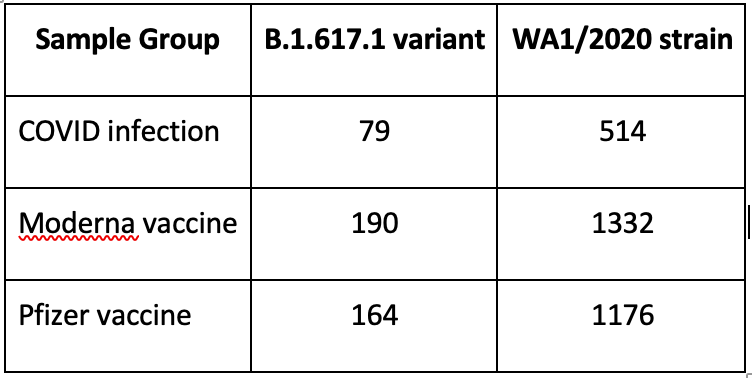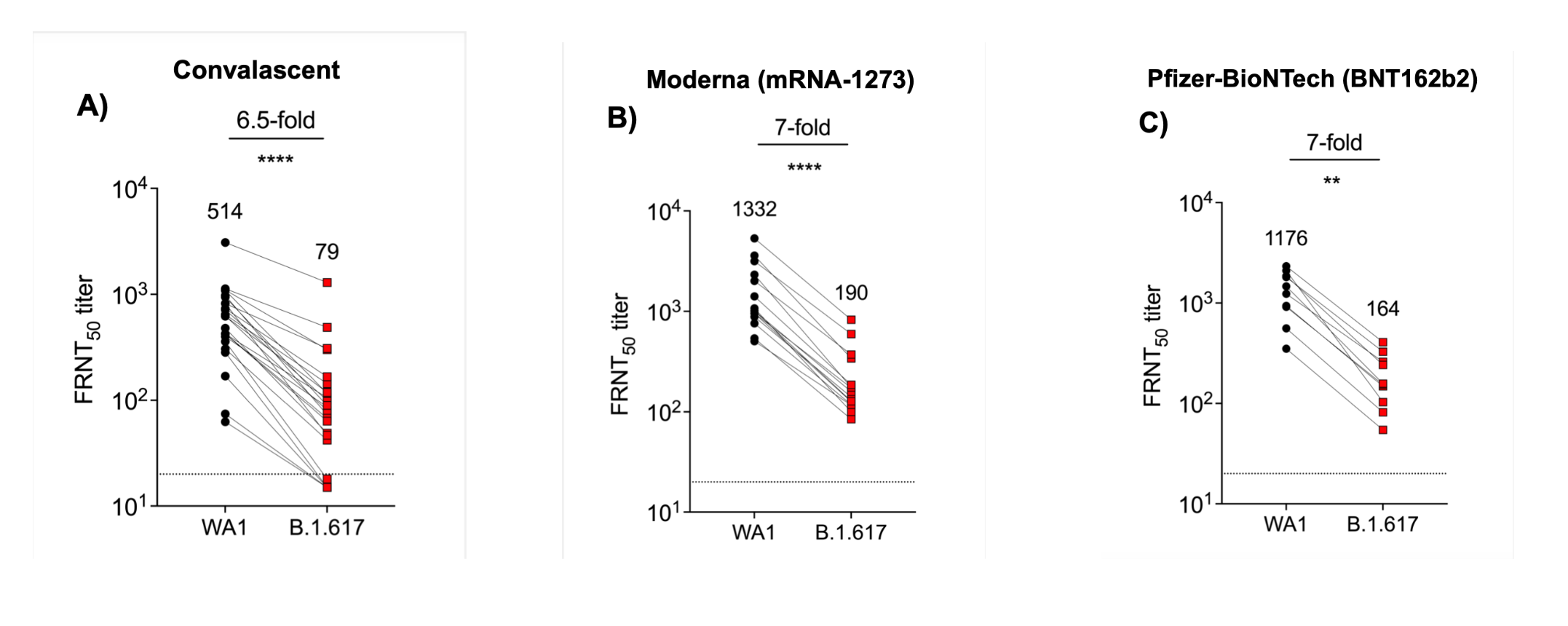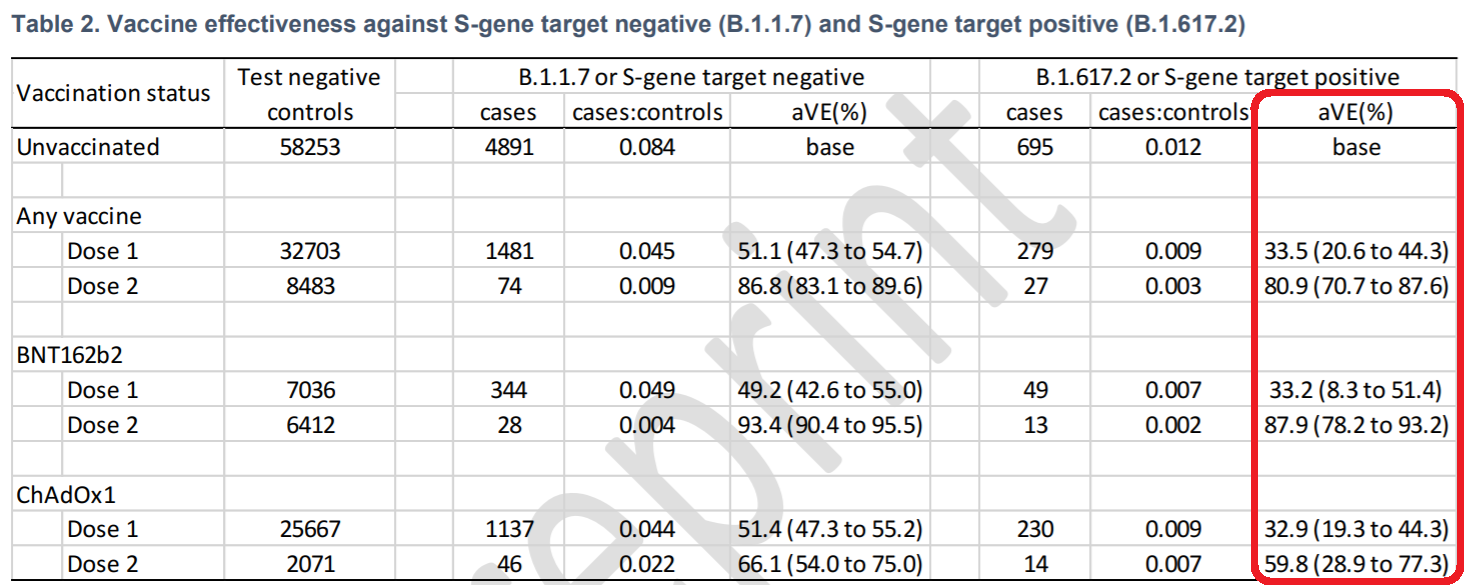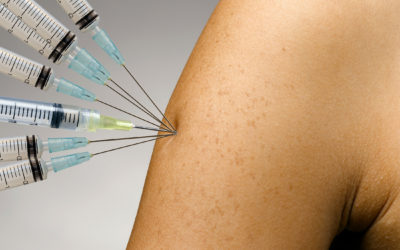Vaccines Protect Against Indian Variant, Next Time We May Not Be As Lucky
Friday May 28th, 2021
- A study found a COVID variant, B.1.617.1, first identified in India to be 6.8x less susceptible to antibody neutralization.
- Despite this, mRNA-based vaccines still retain protective immunity against the variant.
- Though we may have dodged a bullet for now, the susceptibility of viruses to mutations will likely require booster vaccines to keep up with emerging variants.
The B.1.617.1 variant first identified in India has led to a distressing second wave, spreading to nearly 40 countries. This COVID variant has caused some alarm, but we will show below that the data to protect against the Indian variant is actually encouraging.
Antibody Levels Decline, But Still Provide Sufficient Protection
A US-based study investigated the role of neutralizing antibodies on the B.1.617.1 variant in those infected with COVID and those vaccinated against it.
To read more about how antibodies work to fight infection, read LifeScite’s Moderna and Pfizer Challenge the Status Quo with New mRNA Vaccine Approach.
The study included 49 participants in total; 24 infected with COVID, 15 who had received the Moderna vaccine and 10 who had received the Pfizer vaccine. All 49 participants showed reduced neutralization against the B.1.617.1 strain. See the table below for a comparison of the neutralization, measured as a titre, against the B.1.617.1 variant versus the WA1/2020 strain (most prevalent US strain for which vaccines were developed).

As seen above, the antibody levels decline significantly in the Indian variant when compared to the “original” COVID strain. In theory, this should result in lower protection.
The images below also show the neutralizing antibody responses of B.1.617.1 compared with WA1/2020 after infection and vaccination.

As shown in the figures above, the neutralization titre of all three sample groups against B.1.617.2 were all significantly lower compared to WA1/2020. The B.1.617.1 variant is 6.8x less susceptible to neutralization from infected and vaccinated individuals. Although less susceptible, 79% (19/24) of infected individuals and 100% of vaccinated individuals were still able to neutralize the variant. This suggests that although with less strength, mRNA-based vaccines still retain protective immunity against the B.1.617.1 variant.
Real World Data Supporting Antibody Data
Public Health England released data on 12,675 sequenced COVID cases, of which 11,621 had B.1.1.7 detected (UK variant) and 1,054 had B.1.617.2 detected (Indian variant). According to the data, 1 dose of any vaccine provided 34% protection against the Indian variant, whereas 2 doses provided 81% protection. A breakdown of protection by vaccine is given below.

In a sample size of 1,054 cases, the Pfizer/BioNTech vaccine (BNT162b2) provided 33% protection after 1 dose and 88% protection after 2 doses. The AstraZeneca vaccine (ChAdOx1) provided 33% protection after 1 dose and 60% after 2.
Moderna also published a press release stating that their vaccine retained neutralizing activity against UK and South Africa variants. Despite a 6x reduction in neutralizing antibodies seen in the South African variant, the neutralizing levels were still well above that constituting protective immunity.
We May Not Be So Lucky With The Next Variant
For now, it seems as though we have dodged a bullet with the Indian variant. However, knowing the replicative nature of viruses and their susceptibility to mutations, we will likely need booster vaccines that keep up with the emerging variants.
Despite the looming threat of increasingly problematic variants, many still hope for the indefinite eradication of COVID through mass vaccination and safety protocols. Science however, as we know, has no concern for the optimism of humanity. For this reason, it is imperative that we prepare ourselves for an ongoing arms race with this virus. With the ever-changing variants of COVID that continue to emerge from heavily populated areas like India, scientists now fear that the virus is here to stay, just like the flu.
In a Nature poll, 119 immunologists, virologists and infectious disease experts were asked how likely they think it is that COVID becomes an endemic virus that stays with us infinitely like the flu.

60% stated very likely and 20% saying likely (6% saying not enough information). They were asked again, how likely they believe COVID-19 can be eradicated from some regions; the results are no more encouraging with a near 34% saying either likely or very likely and 52% saying unlikely or very unlikely (and 10% said not enough information). These legitimate concerns shed even more light on the likely possibility for annual vaccinations for COVID-19.


